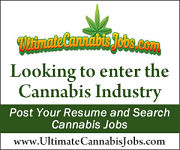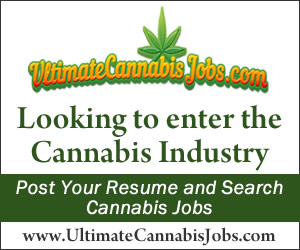JobSeeker Login
JobSeeker Menu
Latest News
-
( 06/10/2025 )
-
Trump signs several workplace-related executive orders on the first day of his second term
( 01/23/2025 ) -
randstad usa releases most in-demand jobs trending for the new year
( 03/13/2024 ) -
( 12/07/2023 )
-
LG Energy Solution a $1.7 billion Investment and Expansion in Holland, MI adding 1200 jobs
( 07/18/2022 )
Upcoming Events
-
No Event found!
| Article Listing | Search Articles | More Articles in Interview Advice | More Articles by |
Interview Tips & Tools - Before and After the Interview |
| by - 03/01/2021 |
| "Interview Tips & Tools - Before and After the Interview" |
| Preparation (before the interview) Preparation will make or break your interview. This may sound obvious, but too often it's overlooked. I’ve interviewed many applicants that walked into an interview without knowing about the industry and the company. Below are some simple steps to help you prepare for the interview. Personal - Know your own qualifications and how they relate to the position. Review your skills and the character traits you have that will help the company's bottom line. Mentally review your past achievements and be prepared to describe your work experience in detail. Almost every interviewer will ask you: "Tell me about yourself." When answering, put yourself in the employer's shoes. If you were hiring someone for the position, what would you want to know? Industry - Know everything you can about the industry. Find out as much as you can about the position, the company and its needs. Knowing these facts will enable you to prove how your background meets those needs. Research the company on the Internet and at your local library. Check social networking sites to see if your friends are connected to anyone that can help your investigation. Employers are as interested in your questions as they are in your answers. It is a huge plus if you ask intelligent questions about the position, the company and the industry. First Impression (at the interview) The first few minutes are critical. They will set the tone for the interview. Project enthusiasm about the position, show confidence and competence. Your goal is to convince the interviewer that you would be an asset to the company. Visual Image - Dress appropriately for the position you're seeking. Your attire must fit well within the office. Don't wear a suit to a creative agency or jeans to a legal firm. If you don't know what the typical attire at the company is, ask when setting up the interview. Your shoes should be polished; pants/skirts and shirts pressed. Clean hair and fingernails are essential. Avoid excessive cologne, jewelry or make-up. Be Prompt - Be on time! Allow extra time for traffic, parking and slow elevators. Do whatever it takes to arrive a few minutes early. If necessary, drive to the company the night before and time yourself. Late arrival for a job interview is never excusable. The Interview (at the interview) Do not rely on your application or resume to do the selling for you. Interviewers will want you to speak for yourself. Your resume was most likely pre-screened by the HR department, and your interviewer hasn’t even seen your resume. Sell yourself! When you are answering the interviewers questions, look the prospective employer in the eye while speaking. Show enthusiasm; enthusiastic feedback can enhance your chances of being considered. The bottom line is that you want appear confident with yourself and your background. Don't inquire about salary, vacations, bonuses, retirement, etc., on the initial interview unless you are sure the employer is interested in hiring you. If the interviewer asks what salary you want, indicate what you've earned but that you're more interested in opportunity than in a specific salary. Follow-up (after the interview) Often overlooked, the follow-up is the final step in the interviewing process. It's essential that you send a thank-you note to every person you met at the company (remember to ask for business cards). In your letter, summarize your conversation and re-emphasize the skills you would bring to the position. If you are interested in the position, avoid sending a generic thank you letter. Include reasons why you are the perfect candidate for the job. Chances are that 100’s of people are interviewing for the same position that you did so you'll want to draw from unique qualifications to stand out and be remembered. Letter of Recommendation (after the interview) A letter of recommendation may be requested by an employer during the application process. The letter of recommendation is written by an employer, coworker or qualified friend, and basically serves as a written reference for your past accomplishments and on-the-job performance. To review more information on letters of recommendation and how to compose a letter of recommendation, please review our letter of recommendation examples and definition section within the FAQs. Personal References (after the interview) Personal references are fairly self explanatory. These are people that will speak to your personal attributes as well as your on-the-job performance. Usually, you would include current or former coworkers, subordinates and bosses as references. Before providing names and phone numbers, touch base with each of your references to insure they are willing to provide a reference. Not doing this could cost you a job. A common question for your references will be: if given the chance, would you hire this person / work with or for them again? Be sure that you know what your referral will say. Usually potential employers will ask for three personal references, however some companies will require more during the selection process. |






